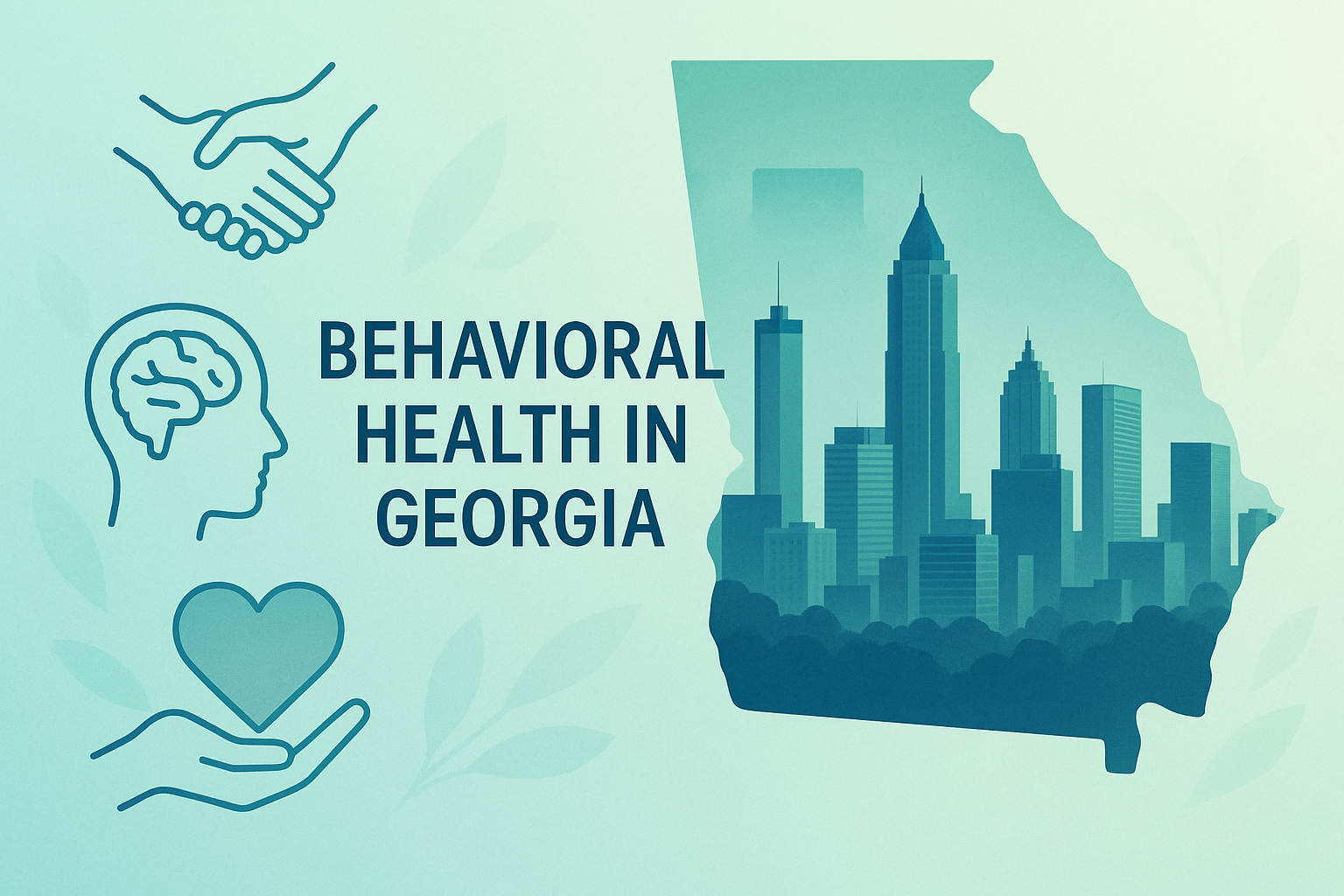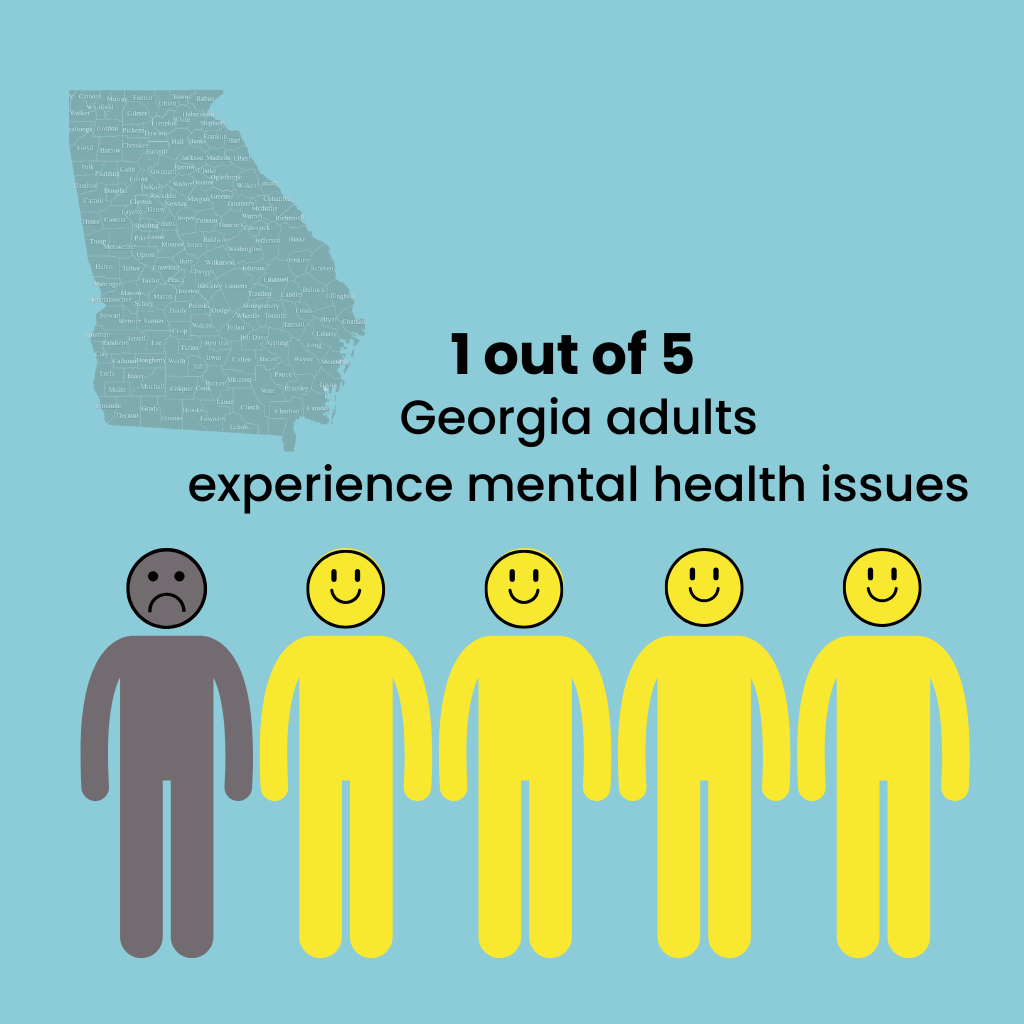Behavioral Health in Georgia: What You Need to Know and Where to Find Help

Stefanie Solomon

At Animo Sano Psychiatry, we’ve seen firsthand how challenging it can be for our Georgia patients to access quality mental health care. The statistics are sobering, but behind every number is a person deserving of support, understanding, and effective treatment.
How Common Are Mental Health Challenges in Georgia?
If you’re struggling with your mental health in Georgia, you’re far from alone. More than 1.4 million adults in this state live with mental health conditions—that’s more than twice the population of Atlanta. To put this in perspective, one in five Georgia adults experiences mental illness each year, and 336,000 adults are dealing with serious mental illness.
The COVID-19 pandemic made things even more difficult. In February 2021, nearly half of Georgia adults (44.3%) reported symptoms of anxiety or depression. What’s particularly heartbreaking is that 29.4% of those struggling couldn’t get the counseling or therapy they needed.

Why Is It So Hard to Get Mental Health Care in Georgia?
The main barriers that make getting mental health treatment feels like an uphill battle:
- Cost is the biggest obstacle. Of the 391,000 adults in Georgia who didn’t receive needed mental health care, 45.4% said they couldn’t afford it. We understand this frustration—mental health care should be accessible to everyone, regardless of their financial situation.
- Lack of mental health professionals. Nearly 5 million people in Georgia live in communities without adequate mental health resources. That’s why at Animo Sano Psychiatry, we offer both online psychiatry services to reach more people throughout the state and in-person services in key locations.
- Insurance complications. Georgians are over four times more likely to be forced out-of-network for mental health care compared to primary health care, leading to higher out-of-pocket costs and more difficulty finding providers.
What About Georgia’s Young People?
Our hearts especially go out to Georgia’s youth and their families. 104,000 young Georgians between ages 12-17 have depression, yet 68.4% didn’t receive any care in the past year. This isn’t just a number—it represents tens of thousands of young people struggling in silence.
The ripple effects are significant. High school students with depression are more than twice as likely to drop out compared to their peers, setting them up for long-term challenges that could be prevented with proper support.
How Does Mental Health Connect to Other Problems in Georgia?
Mental health challenges don’t exist in isolation. When people can’t access treatment, the consequences reach far beyond the individual:
- Seven in ten youth in the juvenile justice system have mental health conditions
- One in four people with serious mental illness has been arrested at some point
- About 10,234 people in Georgia are homeless, and one in six live with serious mental illness
- In Georgia alone, 1,569 lives were lost to suicide, and 314,000 adults had thoughts of suicide in the past year
These connections show us that investing in mental health isn’t just about individual wellbeing—it’s about building stronger, healthier communities.
How Can We Make Mental Health Care More Accessible in Georgia?

Real change requires action at multiple levels:
For Insurance and Access: We need stronger enforcement of mental health parity laws and more providers accepting insurance to reduce out-of-network costs.
For Workforce Development: Georgia needs strategic investment in training more mental health professionals, especially in rural and underserved areas.
For Prevention: Expanding mental health education in schools and communities can help identify concerns early, before they reach crisis levels.
Final Thoughts
The mental health numbers in Georgia may be concerning, but they also point us toward where help is most needed. Every person who connects to care, every family that learns about resources, and every community that challenges stigma — these are meaningful steps forward.
Mental health conditions are medical, treatable, and recovery is possible. At Animo Sano Psychiatry, we see that hope every day. If you’re ready to take the next step, you don’t have to do it alone — we’re here to help.
Responsibly edited by AI
Other Blog Posts in
Animo Sano Psychiatry is open for patients in North Carolina, Georgia and Tennessee. If you’d like to schedule an appointment, please contact us.
Get Access to Behavioral Health Care
Let’s take your first step towards. Press the button to get started. We’ll be back to you as soon as possible.ecovery, together.




